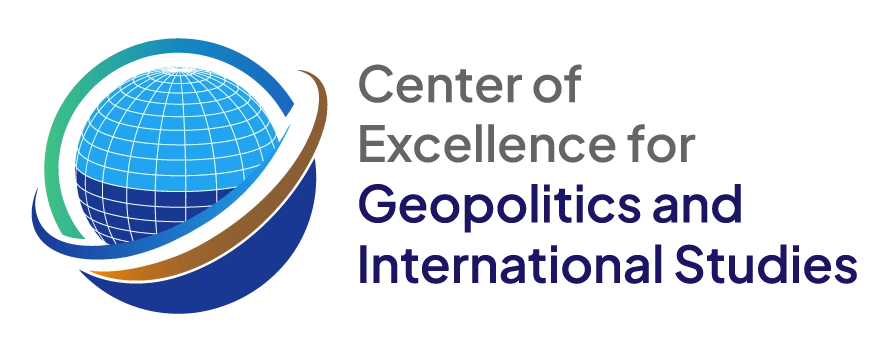An Analysis of Emerging Regional Dynamics of the 3+3 Initiative in the South Caucasus
Dr. Zheer Ahmed
The 3+3 initiative comprising the three South Caucasus nations, Armenia, Azerbaijan, and Georgia and the three principal adjacent regional powers, Iran, Turkey, and Russia serves as a salient example of the evolving world order in the post-Cold War period. The shifting global dynamics, significantly expedited by the conflict in Ukraine and the subsequent, though tentative, rapprochement between Moscow and Washington, have profoundly disrupted the established geopolitical framework, particularly in the broader Black Sea and South Caucasus regions. These developments have not only underscored the fluidity of regional power structures, but have also created strategic vacuums which local actors are increasingly seeking to fill through alternative multilateral mechanisms such as the 3+3 platform.
In this context, the recent intensification of discourse surrounding the 3+3 initiative is unsurprising. Many policymakers and analysts perceive it as a potential remedy for the strategic void left by the apparent disengagement of Western powers, most notably the United States and the European Union from the South Caucasus. Although the 3+3 structure is accepted by all intended participants except Georgia, it serves as a forum albeit an informal one for regional stakeholders to engage in dialogue over security, economic cooperation, and infrastructural development. Nonetheless, opinions about the effectiveness and long-term viability of the initiative vary considerably, reflecting the divergent national interests and geopolitical aspirations of its members.
From Russia’s perspective, participation in the 3+3 initiative presents a complex calculus of advantages and risks. On the one hand, the initiative aligns with Russia’s long-standing strategic objective of excluding non-regional powers, particularly Western actors, from influencing the South Caucasus. This ambition resonates with broader Russian foreign policy aims to cultivate regional spheres of influence unimpeded by external interventions. Russia’s alignment with Turkey and Iran within the 3+3 framework thus facilitates a collective effort to consolidate regional ownership of the South Caucasus’ future.
On the other hand, the multilateral nature of the 3+3 platform challenges Russia’s traditional self-image as the unrivalled hegemon in the South Caucasus. Historically, Moscow perceived itself as the principal arbiter of regional disputes and the guarantor of security in the post-Soviet space. The participation of Turkey and Iran in the 3+3 framework threatens to equalize the influence among these three powers, thereby undermining Russia’s relative primacy. In particular, the growing Turkish influence in the South Caucasus, bolstered by Ankara’s deepening ties with Azerbaijan and its active involvement in post-war reconstruction efforts in Nagorno-Karabakh, poses a substantial strategic challenge to Russia’s ambitions.
Initially, Russia’s posture towards the 3+3 initiative was characterized by cautious ambivalence. While the Kremlin refrained from formally endorsing the initiative, it nevertheless signaled a willingness to participate, recognizing the strategic imperative of preventing the West’s re-entry into the South Caucasus. However, fully embracing the 3+3 platform carries significant risks for Moscow, notably the potential legitimization of Turkey’s expanding geopolitical role in the region. A similar logic apprises Russia’s guarded stance toward Iran’s regional aspirations, although Tehran’s influence remains comparatively less pronounced than Ankara’s.
Nevertheless, outright opposition to the 3+3 initiative is untenable for Russia. Openly rejecting the platform would risk alienating Turkey and Iran, thereby jeopardizing Moscow’s broader strategy of fostering a regional order predicated on the exclusion of Western powers. Therefore, Russia’s approach has been to cautiously engage with the platform, seeking to shape its evolution in ways that protect Russian core interests while preventing Ankara and Tehran from accruing disproportionate influence. In this envisioned order, Russia aspires to retain a hegemonic role among regional powers, albeit within a more pluralistic and competitive framework than in the past. The Kremlin appears to have accepted, reluctantly, that the era of uncontested Russian dominance over the South Caucasus is irretrievably over.
The issue of Georgia constitutes a significant complication for the 3+3 initiative. Tbilisi has steadfastly refused to participate in the platform, citing the ongoing Russian occupation of approximately 20% of its internationally recognized territory, namely the regions of Abkhazia and South Ossetia. From Georgia’s perspective, engaging in a multilateral forum that includes Russia without addressing fundamental issues of territorial integrity would be tantamount to legitimizing the status quo. Moreover, Georgian officials question whether the 3+3 initiative can deliver substantive commercial, economic, or infrastructural enterprises that would justify compromising their principled stance on sovereignty.
Nonetheless, the broader regional dynamics may eventually compel Georgia to reconsider its position. Despite its pro-Western orientation, Georgia faces declining engagement and growing estrangement from traditional Western partners, driven in part by concerns over domestic political developments and a perceived backsliding on democratic reforms. Coupled with the imperatives of geographical proximity and economic interdependence, these factors may drive Tbilisi toward a more pragmatic engagement with its immediate neighbors. In doing so, Georgia would seek to balance its Euro-Atlantic aspirations with the necessity of participating in regional processes that directly impact its security and economic interests.
The 3+3 initiative encapsulates both the opportunities and challenges inherent in the emerging multipolar order. It reflects the growing agency of regional powers in shaping their strategic environments while simultaneously revealing the limitations of unilateral dominance in an increasingly interconnected and competitive geopolitical landscape. For Russia, Turkey, and Iran and potentially Georgia, the 3+3 format represents both a pragmatic necessity and a strategic gamble. Its ultimate success will hinge on the ability of its participants to reconcile competing interests, navigate historical grievances, and adapt to the rapidly evolving dynamics of the South Caucasus and beyond.
Dr. Zheer Ahmed, Assistant Professor, Center of Excellence for Geopolitics and International Studies, REVA University, Bengaluru.
